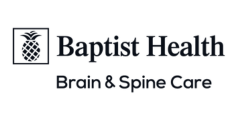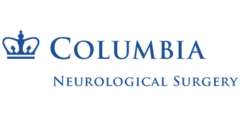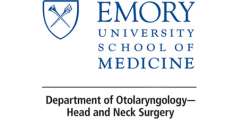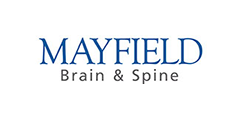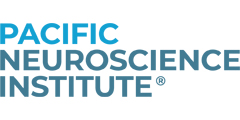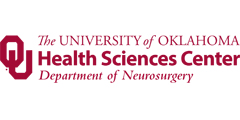Acoustic Neuroma Treatment Side Effects
Acoustic neuroma patients may experience symptoms and/or side effects of treatment.
Each heading slides to reveal information.
Balance Issues
Balance and dizziness issues are very common with acoustic neuroma, both pre- and post-treatment and can be long or short-term. Some patients experience vertigo, nausea, or what many describe as ‘wonky headedness’. These symptoms can be mild to severe, may be noticeable only during certain activities, or may impact ability to work or drive. The location of the tumor and its blood supply affect balance more than the tumor size itself.
Acoustic neuromas are also called vestibular schwannomas because they arise from the sheath of the eighth cranial nerve which plays an important role in the body's balance system. With surgery or radiation the balance nerve may be compromised and will take time to heal. If the nerve was severed, the balance nerve on the other side of the brain can take over, but this does not happen immediately. Balance or vestibular therapy can be quite effective for many acoustic neuroma patients. Refer to the ANA patient information booklet - Improving Balance Associated with Acoustic Neuroma.
Cognitive and Emotional Issues
The symptoms, diagnosis, and treatment options for acoustic neuroma can significantly challenge patients’ cognitive and emotional states. Fatigue, depression, relationship challenges, difficulty concentrating, and memory issues are potential side effects. There are therapies available specifically to brain tumor patients, and a neuropsychologist may be able to help. Neuropsychologists have expertise in assessing and treating problems with cognitive skills, psychological functions, and behavior as they relate to the brain and central nervous system. You may want to have an evaluation to determine which course of therapy and rehabilitation will work best for you. Your neurologist or neurosurgeon can help you find a Board Certified neuropsychologist, or you can contact The American Academy of Clinical Neuropsychology (AACN),https://www.theaacn.org/ to search for providers in your area.
Mindfulness and meditation courses, ANA Support Groups, yoga, spirituality or religious belief, improvement in diet, and getting enough sleep can also be helpful. Patients should seek local and online resources. The ANA has several webinars, videos, and articles available, as well as our information booklet Understanding Emotional, Cognitive, and Behavioral Changes.
CSF leaks
Cerebrospinal fluid, or CSF, is a watery fluid that flows in the ventricles (cavities) within the brain and around the surface of the brain and spinal cord. It is continuously produced and absorbed. On occasion, CSF leaks can happen after the microsurgical removal of an acoustic neuroma tumor. They can occur either through the nose or from the incision. Such leaks appear as a clear, watery discharge and can leave a salty taste in your mouth or a dripping feeling from your nose or from the incision. If left untreated, an infection that could lead to meningitis may follow, therefore these symptoms should be reported to your doctor immediately.
Eye Issues
Because of its proximity to multiple cranial nerves associated with eye function, removal of an acoustic neuroma may affect the eye of the patient. These nerves affect facial function, such as blinking and eyelid closure, sensation, tears, eye muscles and movement, and healing abilities.
Acoustic neuroma patients may experience difficulty blinking, excess moisture or dryness, double vision, or eye sensitivity. It is very important that the eye be protected and it may be necessary to apply artificial tears or to tape the eye shut to allow for healing. There are also several surgical options for improving eye issues. The ANA has a patient information booklet that covers eye issues in more depth– Eye Care after Acoustic Neuroma Surgery.
Facial Issues
Acoustic neuroma patients can experience facial pain, weakness, or paralysis, either before or after treatment. Post-surgery facial paralysis is less common than it used to be because of changes in the way surgeons attend to facial nerve concerns.
The 7th cranial nerve, or facial nerve, is often affected in the treatment of an acoustic neuroma. The nerve may be damaged with either surgery or radiation, however it is usually possible to preserve some degree of facial function, even in cases where the nerve is extensively involved. Temporary weakness of the face due to nerve swelling is common; although in some cases there may be permanent facial weakness.
If the facial nerve is damaged, it is possible for it to regenerate slowly. It is also possible to reconnect the facial nerve during or after surgery. When it is not possible to repair the facial nerve, additional surgeries may be necessary to substitute other nerves, allowing partial voluntary movement to return. There are also many non-surgical options including exercises for patients with facial issues. Refer to the ANA patient information booklet – Facial Nerve and Acoustic Neuroma – Possible Damage and Rehabilitation.
Headache
Headache post-treatment can be caused by a variety of reasons. The acute phase refers to headache experienced for the first several weeks post-treatment, due to the incision, variations in cerebrospinal fluid pressure, muscle pain, or even meningitic pain. Depending on the type of treatment, the reported incidence of headache ranges from 23% to 33% of patients. Frequent and severe post-operative headaches have been more often associated with the retrosigmoid/sub-occipital surgery approach than the translabyrinthine or middle fossa approaches. Chronic headache following acoustic neuroma surgery has been noted to be higher than after craniotomy for other causes.
Chronic headaches can persist for months or even years, and many times the exact prevalence and causes are elusive. Younger age, greater anxiety and depression, pre-existing diagnosis of migraine, and presence of headaches prior to treatment are the primary predictors of severe long-term headache disability, while tumor size and treatment modality had little influence. Preventative medications, local therapy to neck muscles, antidepressants, stress reduction, acupuncture, and lifestyle changes are all potential avenues for patients to explore. In the most resistant cases, it may be necessary to treat headaches in a multidisciplinary pain center. Refer to the ANA patient information booklet – Headache Associated with Acoustic Neuroma Treatment.
Hearing Loss
Hearing loss in acoustic neuroma patients can vary from no or mild hearing loss to complete deafness (also known as profound hearing loss or single-sided deafness – SSD). Hearing loss on one side (asymmetrical) is the most common first symptom of acoustic neuroma. Approximately 90% of participants report single-sided hearing loss or deafness. Most patients present with a slowly progressive hearing loss; however, some patients experience a sudden loss of hearing on the side of the tumor. Tinnitus on the tumor side is also common. An audiologist will look for asymmetrical hearing loss, particularly high-frequency sensorineural hearing loss.
Hearing loss may occur whether one chooses observation, radiation therapy, or surgery. Patients and their doctors should discuss the possibility of hearing preservation with each treatment option. There are many options for hearing aids, each with pros and cons. As the degree of hearing loss varies among patients, the type of hearing aid best-suited for each depends on many factors.
Hearing loss can disrupt one’s social and work life; it can contribute to depression and a sense of isolation. Hearing rehabilitation, using hearing aids, and assistive listening devices, can be quite useful and improve quality of life.
Refer to the ANA patient information booklet – Hearing Loss – Rehabilitation for Acoustic Neuroma Patients
Hydrocephalus
A small percentage of patients will suffer from hydrocephalus, caused by an excessive accumulation of CSF in the brain. This condition is alleviated by an operation which places a "shunt" in the area to drain the fluid and relieve the excess pressure.
Meningitis
CSF leaks and infection following surgery are rare occurrences which can lead to meningitis if left untreated. Meningitis is inflammation or irritation of the meninges (fluid and tissue surrounding the brain). One causal factor that is particular to acoustic neuroma surgery is the drilling of bone from within the intradural space for further exposure of the tumor in the internal auditory canal. This process is nearly exclusive to the retrosigmoid approach and is much less common in the translabyrinthine or middle fossa approaches. The drilling often results in bone dust distributed around the meninges in the posterior fossa, which can be difficult to remove completely. Two studies have highlighted the importance of bone dust in inducing meningitis following AN surgery. If this condition occurs, it would require an extended hospital stay.
Mouth Issues
It is not uncommon to experience dry mouth and taste disturbance for a few weeks following surgery or radiation treatment. In some cases the duration is prolonged. Dentists may recommend mouth rinses or other medications. If swallowing becomes a problem, a speech pathologist, nurse, or occupational therapist can provide exercises to help. Facial weakness or paralysis, numbness, or facial pain may impact chewing and drinking, tooth, and oral health. For patients experiencing these side effects, a dentist can help with these issues.
Regrowth of the Tumor
Recurrence of acoustic neuromas can be caused by several factors and usually only occur in a small percentage of patients. There is unfortunately no good way to predict which tumors will recur after treatment. Sometimes a small part of the tumor is left along the facial nerve at the time of initial surgery in an effort to preserve its function. Management options for the recurrence or re-growth of the tumor can include another surgery or oftentimes radiation. Each patient should be counseled on a case-by-case basis by doctors with expertise and experience with treating acoustic neuromas.
Seizures and Strokes
A rare complication of acoustic neuroma surgery is the possibility of a stroke due to damage to major blood vessels in the brain. Fortunately, current microsurgical techniques take great care to preserve all major blood vessels encountered during the removal of the tumor, making a stroke quite rare. However, any significant changes in thought processes or neurological functioning should be immediately reported to physicians.
Tinnitus
Tinnitus is the perception of sound when no actual external noise is present. While it is commonly referred to as “ringing in the ears,” tinnitus can manifest in many different perceptions of sound, including buzzing, hissing, whistling, swooshing, and clicking. In some rare cases, tinnitus patients report hearing music. Tinnitus can be both an acute (temporary) condition or a chronic (ongoing) health malady. – American Tinnitus Association
Tinnitus is a common presenting symptom of acoustic neuroma, and can impact quality of life. Although there is no cure for tinnitus, there are several treatment options that can lessen the impact on the patient. Some hearing aids and devices have features that mitigate tinnitus.


